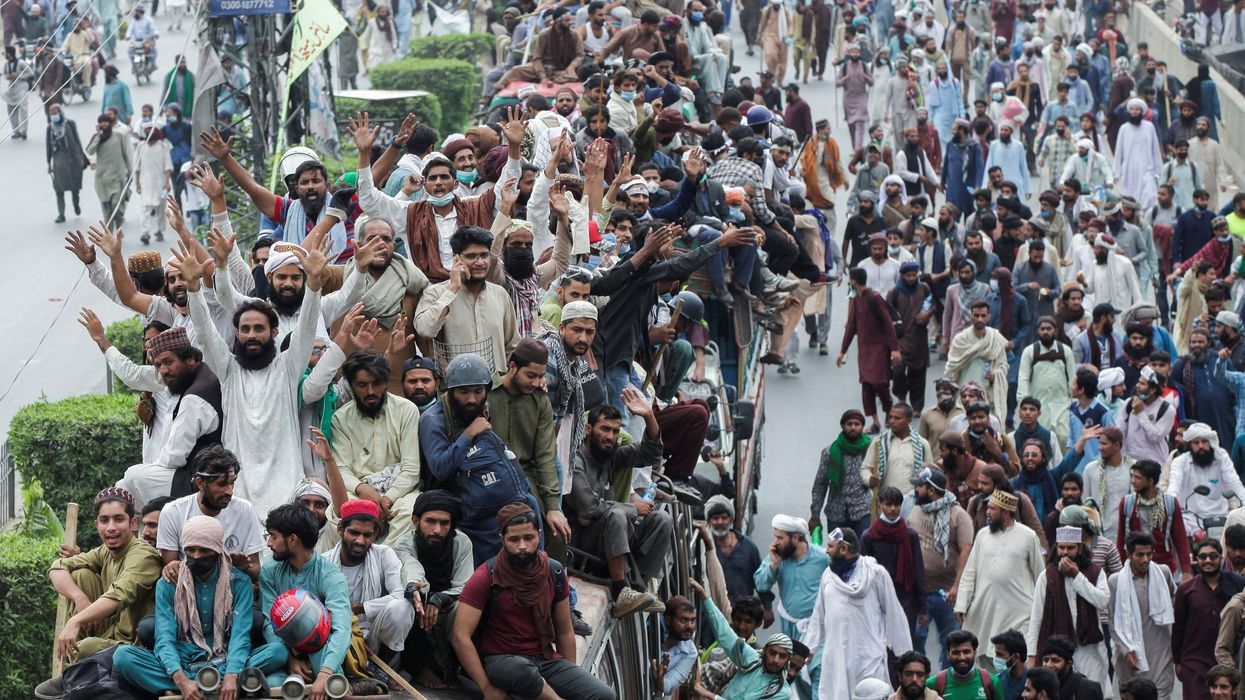PAKISTAN is to free more than 2,000 jailed activists of a banned Islamist militant group and allow the movement to contest elections, under a deal with the government struck to end weeks of violent clashes, negotiators on both sides said.
In return, the Tehrik-e-Labaik Pakistan has agreed to shun the politics of violence and withdraw its longstanding demand to have France's ambassador expelled over the publication of caricatures of the Prophet Mohammad by a French satirical magazine, they said on condition of anonymity.
The caricatures have triggered repeated demonstrations by the group to protest what it considers blasphemy.
Prime minister Imran Khan's government banned the TLP after its protests turned violent earlier this year, designated it a terrorist group and arrested its chief Saad Rizvi.
The government and the movement said at the weekend they had reached an agreement to help end the clashes, but neither side gave details.
Two members of the TLP's negotiating team and one from the government side said the centrepiece of the deal was to lift the ban and allow the group to contest elections.
"The state has acknowledged that the TLP is neither a terrorist group nor a banned outfit," another member of the TLP negotiation team, Bashir Farooqi, separately told local Dunya News TV.
In addition, the government has agreed not to contest the release of the group's jailed leader as well as nearly 2,300 activists and to remove their names from a terrorist watch list, the three negotiators said.
Punjab province law minister Raja Basharat said nearly 1,000 of the activists had already been released.
Information minister Fawad Chaudhry did not respond to a request for comment.
The settlement came after seven police officers were killed and hundreds more were wounded as they confronted thousands of TLP demonstrators marching up Pakistan's busiest highway from the eastern city of Lahore to Islamabad.
The group, which can mobilise thousands of supporters, was born in 2015 out of a protest campaign to seek the release of a police guard who assassinated a provincial governor in 2011 over his calls to reform blasphemy legislation.
It entered politics in 2017 and surprised the political elite by securing over 2 million votes in the 2018 election.
The next national election is scheduled for 2023, and analysts expect political groups to start gearing up from early next year.
Despite the agreement, TLP demonstrators have refused to clear the Grand Trunk Road, which they have blocked for more than two weeks until the government showed good progress on the agreement, its leaders said.
(Reuters)




